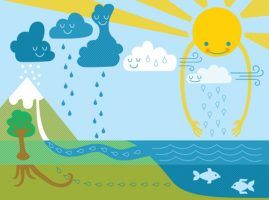
Heroes of the British Isles: primary resource
Discover some of the amazing, compassionate acts carried out across the British Isles
This primary resource helps children to think about their behaviour and to understand how they can contribute positively to the lives of others. Discover different types of ‘hero’ from across the British Isles and the things that they have done to gain their hero status. What does it take to be a campaigner? How can you become an eco-hero? How does the lifeboat captain help people in need?
Pupils will learn how people’s actions can show kindness and respect to other people, animals and the environment in our National Geographic Kids’ Heroes of the British Isles primary resource sheet.
The teaching resource can be used in study group tasks for considering ‘what makes a hero’. It can be used as a printed handout for each pupil to review and annotate, or for display on the interactive whiteboard for class discussion.
Activity: In groups, ask children to discuss the case studies and why the actions of each person are important. Divide the class into four groups: Cool Campaigners, Eco-adventurers, Animals defenders and Water warriors, and ask them to create a mind map of the kinds of beliefs and actions one must have to fit into their given category. They could create a poster about the kind of person that would be suited to their category, using the illustrations in the resource sheet as inspiration.
N.B. The following information for mapping the resource documents to the school curriculum is specifically tailored to the English National Curriculum and Scottish Curriculum for Excellence. We are currently working to bring specifically tailored curriculum resource links for our other territories; including South Africa, Australia and New Zealand. If you have any queries about our upcoming curriculum resource links, please email: schools@ngkids.co.uk
This British values primary resource assists with promoting fundamental British values as part of SMSC (spiritual, moral, social and cultural development) in schools using the following OFSTED assessment criteria:
- It is expected that pupils should understand that while different people may hold different views about what is ‘right’ and ‘wrong’, all people living in England are subject to its law.
Through their provision of SMSC, schools should:
- encourage students to accept responsibility for their behaviour, show initiative, and to understand how they can contribute positively to the lives of those living and working in the locality of the school and to society more widely
- enable students to acquire a broad general knowledge of and respect for public institutions and services in England
- further tolerance and harmony between different cultural traditions by enabling students to acquire an appreciation of and respect for their own and other cultures;
- encourage respect for other people
Download primary resource
More Like

The Water Cycle!

St Lucia facts!

The Great Fire of London Facts









LEAVE A COMMENT
THANK YOU
Your comment will be checked and approved shortly.
WELL DONE,
YOUR COMMENT
HAS BEEN ADDED!
COMMENTS
CUSTOMIZE YOUR AVATAR